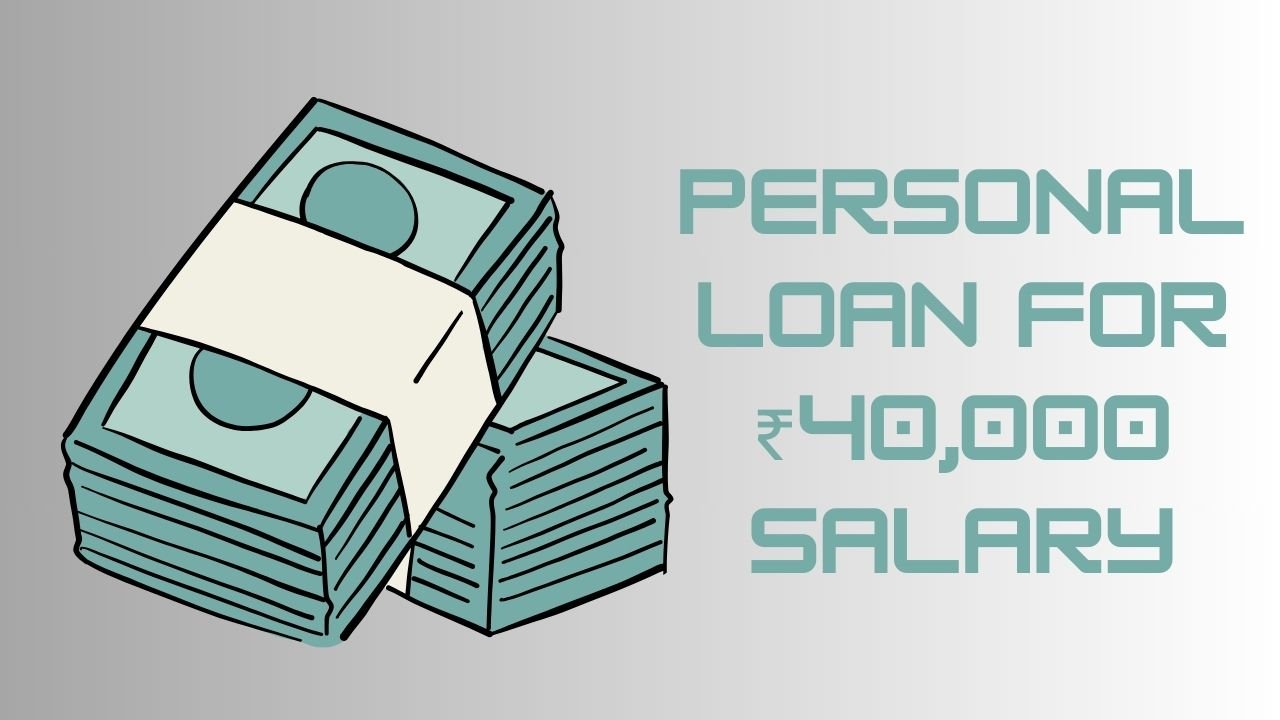If you’re wondering how to secure a personal loan on 40000 salary, here’s a comprehensive guide to help you through the process.
1. Check Your Eligibility Criteria
Before diving into the loan application process, it’s important to understand the factors that determine your eligibility. Lenders typically look at:
- Income: Your ₹40,000 monthly salary is a good starting point, but lenders also take into account your entire income source, including bonuses, commissions, and other sources of income.
- Credit Score: Your credit score is one of the most crucial factors in determining whether you’ll get approved. A score of 750 or above is considered excellent, making it easier to get approved with favorable terms. If your credit score is lower, you may still qualify, but expect higher interest rates.
- Employment Stability: Lenders prefer applicants who have a stable job history. Having a steady income from a reputable employer can significantly boost your chances of approval.
- Debt-to-Income Ratio: This ratio compares your total monthly debt obligations to your monthly income. Lenders usually prefer a debt-to-income ratio below 40%. A lower ratio demonstrates that you can handle additional debt responsibly.
- Age: Lenders usually prefer applicants between the ages of 21 and 60. If you’re within this range, you are more likely to be approved for a loan.
2. Assess Your Loan Amount Requirement
While you may have a ₹40,000 salary, the amount you wish to borrow plays a significant role in the approval process. A higher loan amount increases the risk for the lender. Therefore, it’s essential to calculate your requirement accurately and apply for an amount that you can comfortably repay based on your salary.
Keep in mind that lenders often offer loans with monthly EMI (Equated Monthly Installment) amounts that should ideally not exceed 30-40% of your monthly income. For a ₹40,000 salary, this would mean an EMI of ₹12,000 to ₹16,000. Before applying, make sure you can comfortably afford this amount along with your existing financial commitments.
3. Work on Improving Your Credit Score
Your credit score plays a pivotal role in your loan approval process. A higher credit score indicates that you’re a responsible borrower, which can help secure a loan with a lower interest rate. If your credit score is below 750, here are a few tips to improve it:
- Pay bills on time: Ensure all your credit card bills, loan repayments, and utility bills are paid on time.
- Reduce credit card debt: Avoid carrying a high balance on your credit cards. A lower credit utilization rate improves your score.
- Check your credit report: Regularly check your credit report for errors. If you find any discrepancies, get them corrected immediately.
4. Choose the Right Lender
Not all lenders have the same requirements or interest rates. When you’re on a ₹40,000 salary, it’s important to find a lender who offers favorable terms for individuals with your income bracket. Consider both traditional banks and non-banking financial companies (NBFCs). Some NBFCs are more flexible when it comes to salary-based loans, making it easier for you to get approved.
- Low-interest rates: Compare the interest rates across lenders and choose one that offers a competitive rate.
- Flexible loan terms: Some lenders offer flexible loan repayment terms, allowing you to extend or shorten the loan tenure based on your financial capability.
- Minimal processing fees: Make sure the lender charges reasonable processing fees and other hidden charges.
5. Maintain a Low Debt-to-Income Ratio
As mentioned earlier, lenders want to see that you can manage your existing debt obligations along with a new loan. If your debt-to-income ratio is too high, lenders may not approve your loan application. Here’s how to improve your ratio:
- Pay off existing loans or credit card debt: Reducing your debt can lower your ratio and improve your chances of loan approval.
- Increase your income: If possible, look for additional income sources to boost your monthly earnings and improve your ratio.
- Opt for a lower loan amount: If your debt-to-income ratio is a concern, consider applying for a smaller loan amount to increase your chances of approval.
6. Consider a Co-Applicant or Guarantor
If you’re finding it difficult to qualify for a loan on your own, you may want to consider applying with a co-applicant or guarantor. A co-applicant with a higher income or better credit score can strengthen your application and improve your chances of approval.
However, keep in mind that a co-applicant or guarantor will also be responsible for repaying the loan in case you default, so it’s crucial to be transparent and maintain clear communication with them.
Conclusion
Qualifying for a personal loan with a ₹40,000 salary is certainly possible, but it requires careful planning, a good credit score, and the ability to manage your existing debts.
By understanding your eligibility criteria, choosing the right lender, and maintaining a healthy financial profile, you can secure the personal loan you need. Always ensure that the loan is within your repayment capacity to avoid any future financial strain.
